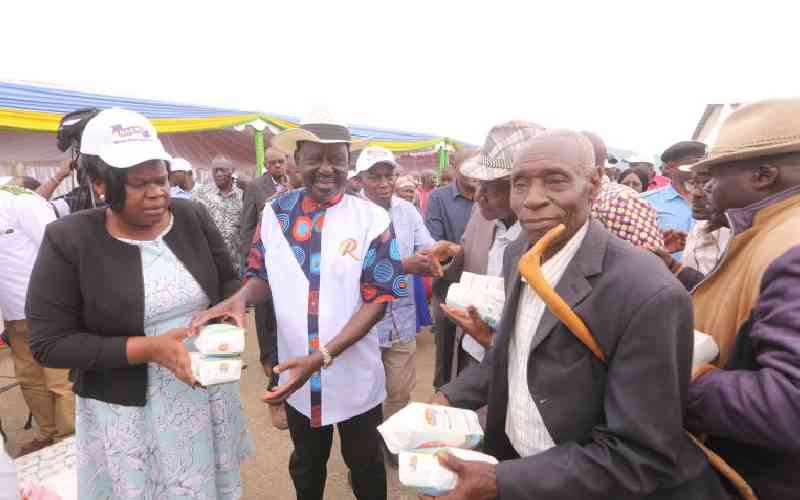×
The Standard e-Paper
Smart Minds Choose Us

As he offered one of his more recent criticisms of President William Ruto's government on Thursday, Azimio la Umoja leader Raila Odinga welcomed former Defence Cabinet Secretary Eugene Wamalwa to the Opposition.
"Karibu kwenye viwanja vya upinzani," Raila told Wamalwa, who was joining the Opposition for the first time.